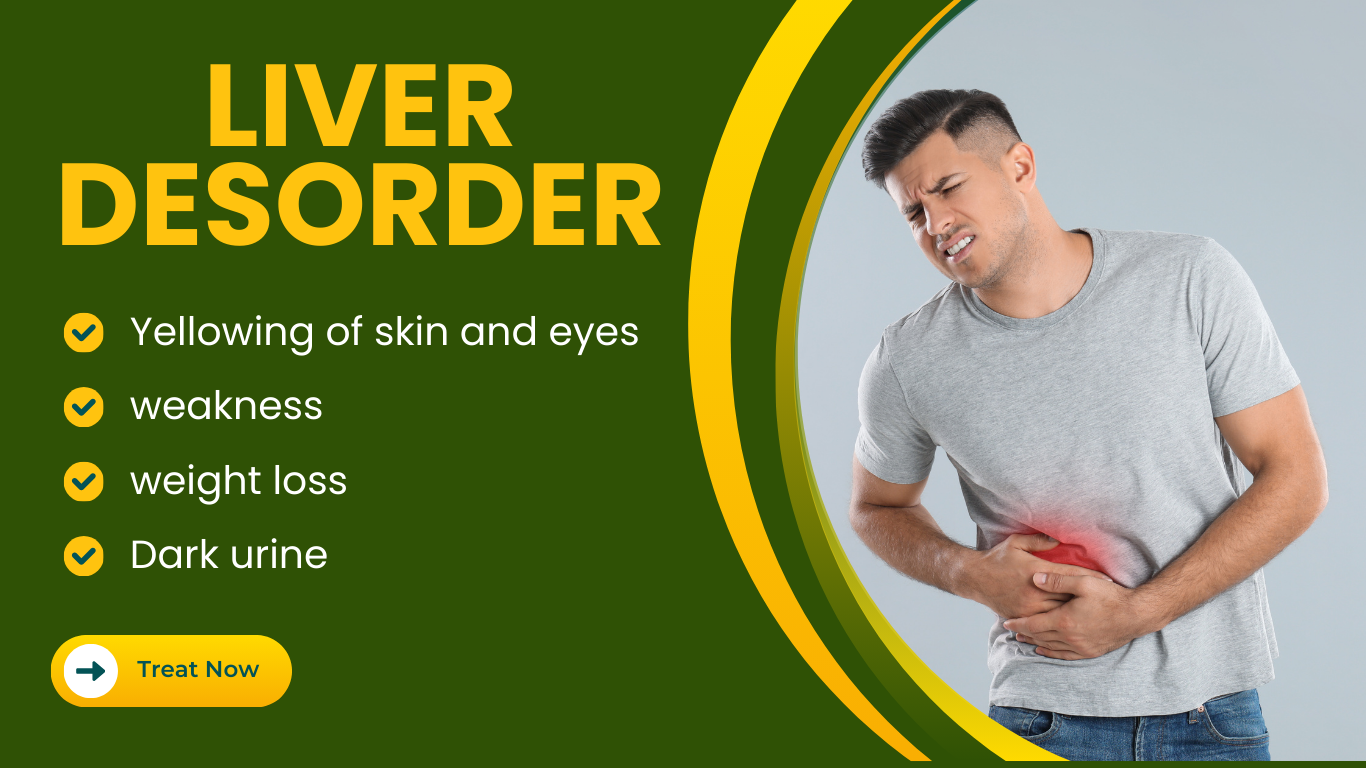1. What are liver disorders?
Liver disorders are medical conditions that damage or reduce the normal function of the liver, such as filtering toxins, producing bile, and storing nutrients.
2. What are the main causes of liver disease?
Viral infections (Hepatitis viruses)
Excess alcohol consumption
Obesity and unhealthy diet (causing fatty liver)
Genetic disorders (Wilson’s disease, Hemochromatosis)
Autoimmune diseases
Certain medicines and toxins
3. What are the symptoms of liver disorders?
Yellowing of skin and eyes (jaundice)
Fatigue and weakness
Loss of appetite and weight loss
Swelling in legs and abdomen (edema, ascites)
Dark urine and pale stools
Nausea and vomiting
Easy bruising and bleeding
4. What complications can occur in liver disease?
Liver failure
Ascites (fluid in abdomen)
Portal hypertension (increased pressure in veins)
Variceal bleeding (from swollen veins in the esophagus)
Hepatic encephalopathy (confusion due to toxin buildup)
Liver cancer
5. How can liver disease be prevented?
Get vaccinated for Hepatitis A & B
Avoid excessive alcohol and smoking
Eat a balanced diet and maintain healthy weight
Practice safe sex and avoid sharing needles (to prevent hepatitis)
Take medicines only under medical supervision
Regular health check-ups if at risk

